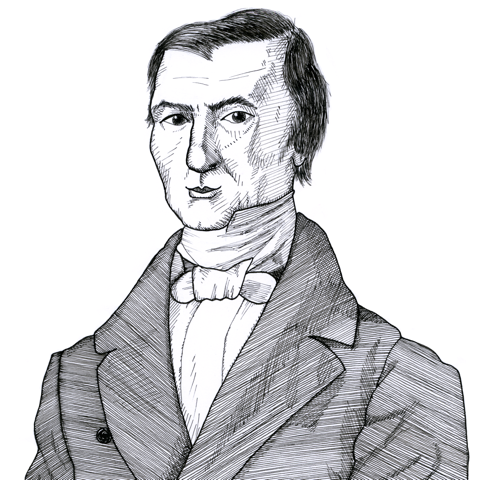
Bastiat’s has a utopian dream of drastically reducing the size of the French state (1847)
Found in: Economic Sophisms (FEE ed.)
In an article he wrote in January 1847 the French free trade advocate Frédéric Bastiat (1801-1850) dreams he is appointed Prime Minister had outlines his plans to the King to drastically reduce taxes and slash government spending by 50 percent:
Liberty
[The King] “… Is this all?”
[[Utopian Prime Minister] “I have scarcely begun.”
“I beg you, let me into your other Utopian plans.”
“I have lost 60 million on salt and the postal services. I have recovered them on Customs duties, which have given me something even more precious.”
“And what is that, if you please?”
“International relationships based on justice, and the likelihood of peace, which is almost a certainty. I would disband the army.”
“The entire army?”
“Except for some specialized divisions, which would recruit voluntarily just like any other profession. And as you can see, conscription would be abolished.” …